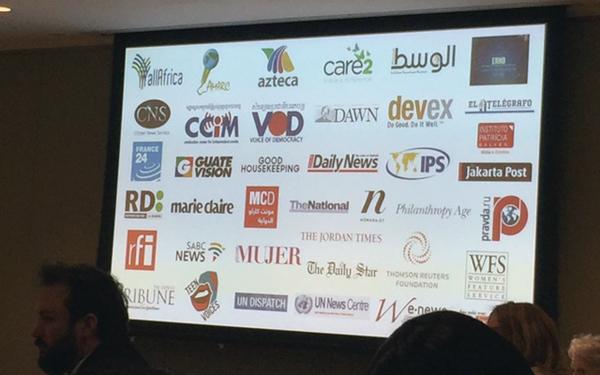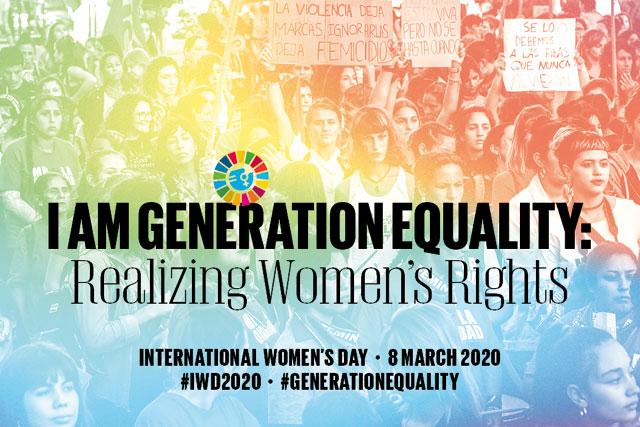You are here
‘Gov’t, civil society, youth must mobilise to realise gender equality’
By Maram Kayed - Dec 02,2019 - Last updated at Dec 07,2019

Executive Director of UN Women Phumzile Mlambo-Ngcuka participates in a recently held conference on gender equality and women’s empowerment in Amman (Photo courtesy of UNDP)
AMMAN — The new generation of girls all over the world is “on fire”, demanding their rights and “not backing down”, said Executive Director of UN Women Phumzile Mlambo-Ngcuka.
In an interview with The Jordan Times on the sidelines of a recently-held conference in Amman that discussed the Arab region’s priorities for the next five years in the area of gender equality and women’s empowerment, Mlamo-Ngcuka praised Jordanian and Syrian refugee girls’ “new attitudes” towards equality.
While meeting with Syrian refugee girls from Zaatari Camp, Mlambo-Ngcuka said she was “impressed” with one girl’s drawing of a young girl telling an old man: “Why would you want to marry a young girl, uncle?”
“These are women who have been through conflict and are now living in an environment where child marriage is normalised. So to see the young generation rejecting these traditions is very promising,” she told The Jordan Times.
The conference was based on an assessment of the progress made and gaps identified in the implementation of the Beijing Declaration and Platform for Action, a declaration for gender equality and women’s empowerment formed 25 years ago.
“Although we can see a glimpse of hope in the younger generation, I’m afraid that 25 years after its adoption, the Beijing Declaration resembles much of the state we are in right now. Not much has changed until then,” said Mlambo-Ngcuka.
One current challenge discussed during the conference was women’s political participation. In many of the world’s countries, over 75 per cent of legislators are men, according to Mlambo-Ngcuka.
“In the Arab world, the pressing problem is that the percentage is lower than the world average, which in itself is already low,” she added.
However, the “advantage” that the Arab world has in that aspect, according to the agency’s executive director, is that Arab nations “are transparent and quick in providing their numbers and statistics, which is something we struggle with in other regions”.
Considering both achievements and difficulties, the year 2020 is being described as “an important year” for the agency, as the work that is being done in each country will be now shared on an international level between governments and civil societies.
The meeting concluded with the adoption of a declaration that will reflect the Arab position on several subjects, all to be presented at the 64th session of the United Nations Commission on the Status of Women in New York in March 2020.
“We do not want to be sitting in 2030 discussing the same things over and over again, which is why we have to mobilise the government, civil societies and youth if we are to achieve the change we want in a relatively short period of time,” concluded Mlambo-Ngcuka.
Related Articles
AMMAN – UN Women on Tuesday launched in New York an innovative partnership with leading media houses to galvanise attention and concrete act
AMMAN — Jordan on Sunday celebrates International Women's Day under the theme “I am Generation Equality: Realising Women’s Rights”.This year
Spending cuts are hurting public and social services that give women the chance to find paid work, independence and a chance at equality, a UN report warned on Monday.

















